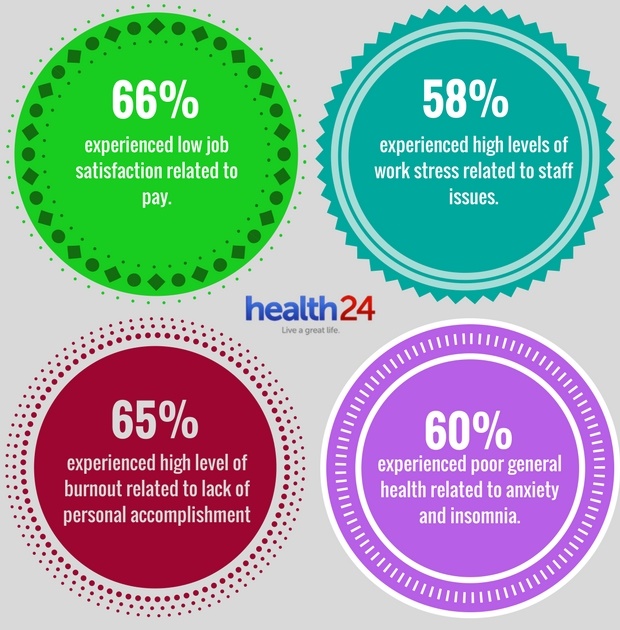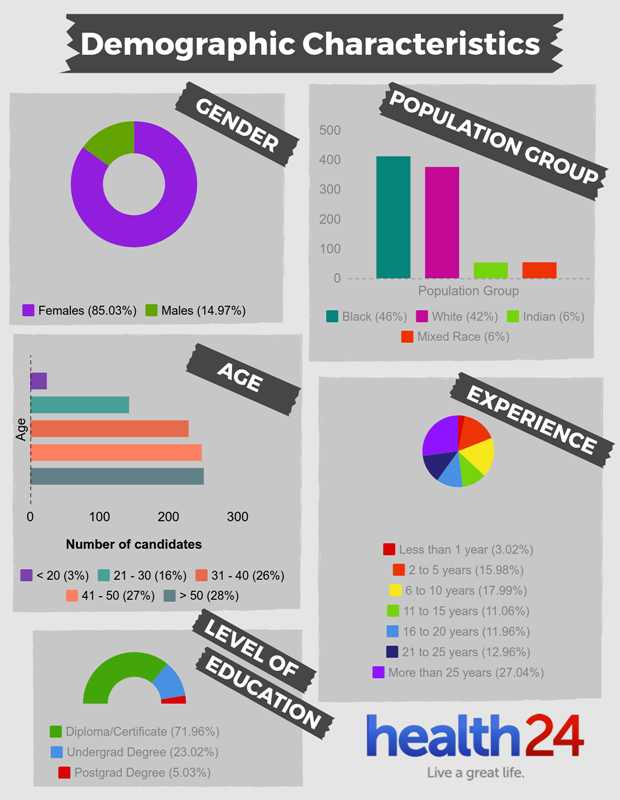An average 11-day difference in recovery rates for burns may be explained by the body clock, a study says.
Daily Archives: 08/11/2017
Birth complications ‘twice as common’ in some hospitals
Women are twice as likely to suffer serious blood loss and severe tears during childbirth in some hospitals, an audit of maternity services found.
Bear or chipmunk? Engineer finds how brain encodes sounds
[unable to retrieve full-text content]

Boy is given new skin thanks to gene therapy
[unable to retrieve full-text content]

Nanoshells could deliver more chemo with fewer side effects
[unable to retrieve full-text content]

‘Butterfly child’ given life-saving skin
Hassan was born with skin so delicate it would tear and blister
University Hospital, Cardiff ‘critical’ mortuary failings
Human tissue was kept longer than necessary after post-mortem examinations at Wales’ biggest hospital.
Health24.com | Work stress vs. personal stress – which causes more burnout?
Studies often examine work stress, and how much of an impact it has on employees and their well-being.
Researchers from Johannesburg, Monash, Free State, Mahidol and Melbourne Universities recently took a different approach. Personal stress was examined as the major factor leading to burnout instead of work stress, hoping that strategies could be developed to help nursing staff, who constantly work in a high-stress environment.
The effect of personal and work stress on burnout, job satisfaction and general health of hospital nurses in SA study required six questionnaires to be completed. Once completed, 86% of the study’s participants said they experienced personal stress related to financial strain.
Personal stress a better predictor
The state of healthcare in South Africa is particularly volatile, given the shortage of health professionals at a number of hospitals. This is due to the freezing of positions, along with the change in systems and processes, as well as the shift from hospital care towards community-based and primary care.
While a few major transitions have been underway, the study states that personal stress is a better predictor of burnout and general health. Personal stress is, however, not considered the better predictor of job satisfaction.
Nurses were randomly selected from four hospitals around Gauteng to take part in the study, but of the 1 200 selected, only 895 agreed to answer the questionnaires distributed to them over a period of three weeks.
The demographic for the study consisted of female and male nurses from diverse population groups, ages, experience levels and education.
Among other results, participants revealed that patient care stress, staff issue stress, job demand stress and lack of support stress were other contributing factors to their ill health and burnout.

Additional challenges
After analysing data, researchers concluded that personal stress negatively affects work roles, and exposure to long-term personal stress negatively affects employees’ health outcomes.
Additional data revealed that certain challenges participants were faced with outside of work, such as marital problems or the ill-health of a loved one, were associated with depression, anxiety and possibly insomnia.
While the study’s sample size was substantial, the study was only conducted in one of South Africa’s nine provinces. Researchers are hoping that the study may be reproduced with public- and private-sector nurses around the country, to come to a more accurate conclusion around personal stress versus work stress, and the roles these play in nurses’ lives.
Researchers also suggested that a few more factors should be taken into consideration, such as the reverse relationship between the variables, along with occupational rank, language, level and type of care, along with public versus private nurses.
NEXT ON HEALTH24X

We want our Brexit cash boost – NHS boss
NHS England’s Simon Stevens says the service needs the money that was promised in the referendum.
Health24.com | 20 simple steps to forge the willpower you need to lose weight and get fit
Willpower: it’s one of those things some people are born with, like thick hair or a trust fund. Right?
Actually, the research suggests otherwise: Roy Baumeister, a professor of social psychology at Florida State University, says you can strengthen your willpower with practice.
“The more you flex it, the stronger it gets,” he says. Try our plan.
Read more: How Men’s Health readers just like you motivated themselves to lose weight and get fit
Beginner:
1. Try an overture
Working out to music is undeniably motivating. But a UK study found that playing ready-to-sweat music before a workout – when you’re struggling with that “C’mon, skip the gym” inner voice – makes you more likely to follow through.
2. Lose the lame clichés
Athletes who attain goals are often said to “hit their peak” or “reach new heights”. But endlessly imagining yourself moving to the top can actually kill motivation, suggests research in the Journal of Consumer Psychology.
3. Sleep for strength
Tired and hungry is no way to get through the day. In a Northern Illinois University study, people with poor sleep habits ran out of self-control faster than deep sleepers did. Solution: hit the hay around the same time each night, avoid napping in the late afternoon, cut out caffeine after 2pm, and use your bed for two things only – sleep and sex.
Read more: How to sleep better, gain muscle and get more sex
4. Play a game
People who play strategy video games tend to do more things that are good for them in the long run, according to a study in the journal Personality and Individual Differences. That could be because these games require you to analyse your actions and their consequences and visualise future possibilities.
5. Don’t skip meals
Maintaining self-control is tougher when you have low blood sugar, suggests research from the University of South Dakota. Higher blood sugar levels signal your body to conserve its resources, of which willpower may be one. To keep your blood sugar levels steady, eat a snack of lean protein (biltong!) or complex carbs, such as vegetables or dried fruit.
6. Clean your mess
A chaotic, disorganised environment can raise stress, weakening willpower. So clean up! In a Cornell study, stressed-out women in a messy kitchen scarfed nearly twice as many cookies as those in a tidy one, reaching for sweets instead of healthier snacks.
7. Take a different route home
In a Health Psychology study, overweight or obese people were more likely to eat high-kilojoule snacks if they were near fast-food joints than if they weren’t. If they were near supermarkets, they were more than twice as likely to eat low-kilojoule snacks.
Read more: The science behind your cravings and how to beat them
Intermediate:
8. Audit what you eat
Keeping an electronic food diary can boost your resolve, and the most diligent reap the biggest rewards. In one study, dietitians suggested myfitnesspal (free, ios and android) more often than other apps.
10. Laugh it off
Cracking up can make you more persistent, according to Australian research. People who watched a comedy clip before attempting a tricky task kept at it longer than people who first watched a nature video. The researchers believe that amusement makes you want to push harder.
Read more: Why funny guys make the best lovers
11. Eat healthy before you shop
People in a Cornell study who ate an apple slice before grocery shopping bought 13% more fruits and vegetables than those who ate a cookie before grabbing a cart. “Eating the apple put shoppers into a health-focused mindset,” says study author Brian Wansink, director of the Cornell University Food and Brand Lab.
12. Get sweaty
A French review found that regular exercise may help bolster discipline. And a study in Psychology of Sport and Exercise suggests that exercise is especially helpful in people prone to low self-control.
13. Tell yourself you want it
People who feel the desire to achieve their goals – as opposed to feeling an obligation to succeed – do better, Canadian research suggests. When you feel compelled to pursue goals, you’re more likely to be tempted by obstacles along the way, like that chocolate cake when you’re trying to cut back on sugar.
Read more: The secret to how everyday South African men are achieving their goals
Advanced:
14. List your goals
Write down some fitness benchmarks for the short and long term, says PT Michael Wood, of Michael Wood Fitness. Keep the objectives specific and quantifiable. “In order to manage something, you need to measure it,” he says. Use an app like Nudge to track your progress.
15. Think really, really big…
When people in a Swiss study thought of willpower as an abundant resource, their self-control improved. Just knowing that willpower is shaped by your beliefs can help you gauge how depleted it is, says study author Katharina Bernecker.
16. But don’t strut
Overconfidence can undermine willpower, according to University of Cincinnati research. To stay on track, study author Anthony Salernore commends taking pride in who you are, as opposed to what you’ve accomplished. “Rather than saying to yourself, ‘I am proud that I am already halfway done with my goal,’ say, ‘I am proud of myself for being a disciplined person,’” Salerno advises.
17. Turn up the AC
People in a psychological research study who held a cold object did better on a self-control test than those with a warm one. Cold temps may be linked to alertness.
Read more: The thing that leaves you more alert than a giant cup of coffee
18. Set reasonable constraints
Try “precommitment” to boost your self-control. In a study from Arizona State and Florida State, researchers promised participants they’d receive 100 M&Ms – but first they had to write down how many they wouldn’t eat. This commitment helped them eat fewer sweets.
19. Plan ahead
Positive thinking isn’t enough says NYU psychologist Gabriele Oettingen. Think about what you want, identify obstacles and plan work-arounds. Say you’re headed out of town. Pack resistance bands so you can work out at the hotel.

20. Turn off your mind
Swiss researchers found that people who meditated showed stronger self-control than those who didn’t meditate. Meditating may help you focus on goals and tune out temptation. Breathe mindfully for 10 minutes a day.
This article was originally published on www.mh.co.za
Image credits: iStock







